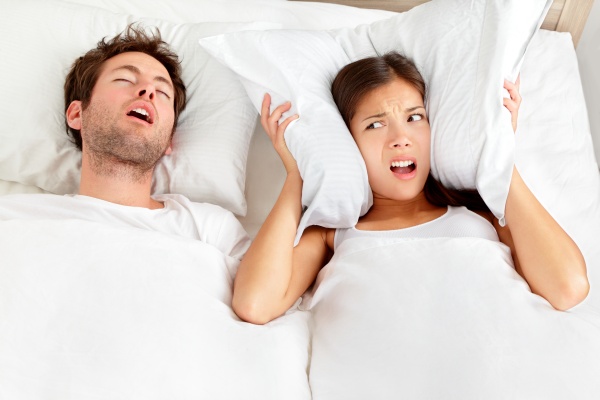Treating Sleep Apnea With Oral Appliance Therapy

It may be surprising to some, but did you know your dentist can actually help with sleep apnea? The dentist is able to prescribe and fit you for a special oral appliance that can assist with proper airflow throughout the night. Here is what you should know about these devices.
What is sleep apnea?
Obstructive sleep apnea is when you stop breathing for at least 10 seconds in your sleep on a regular basis. The severity of sleep apnea depends on how often you stop breathing in the duration of an hour. Snoring can be a sign of partial sleep apnea; so are gasps and chokes when breathing is resumed. The cessation of breath is due to the muscles in the throat and mouth relaxing to the point where they restrict the airway. Along with constant fatigue from a lack of proper sleep, sleep apnea can lead to long-term complications such as cardiac issues and strokes.
The oral appliances
The purpose of oral appliances is to help prevent sleep apnea through placement in the mouth. Thanks to mandibular advancement devices and tongue retaining mouthpieces, oral appliances are a step down from having to use advanced equipment to treat sleep apnea.
Mandibular advancement device
Similar to orthodontic retainers, the mandibular advancement device (MAD) fits over the lower and upper teeth and is connected by hinges. The jaw and tongue are moved and kept forward by the MAD so that during the night the airway and airflow are never restricted.
Tongue retaining mouthpiece
These are built similar to the MADs but are kept in place via suction from a compartment around the tongue that keeps it forward. With the tongue retaining mouthpiece, the jaw is not kept forward for those who are unable to have their jaw do so.
Possible complications
The oral appliances used to treat sleep apnea do have some drawbacks and possible complications that need to be watched for and discussed with your dentist before using the appliance. They include the following:
- The appliances lead to increased amounts of saliva in the mouth, requiring frequent swallowing.
- Damage to teeth and soft tissues in the mouth and jaw muscles and joints is possible.
- The appliance can cause discomfort, especially in the morning. This may result in people not wanting to use the device as often as they should.
- The sleep apnea may be too severe for an oral appliance to be effective.
Conclusion
Oral appliances require a proper fitting in order to be effective for sleep apnea treatment, but they are simple and effective devices. Frequent visits with your dentist for any fitting changes as well as monitoring the effectiveness of your oral appliance can help you find the right fit to aid you in your sleep therapy. You do not need to suffer through sleep apnea affects when your dentist can help you with a simple device.
Are you considering getting an oral appliance for sleep apnea in the Albuquerque area? Get more information at https://familychoicedentistry.com.
Check out what others are saying about our dental services on Yelp: Do I Have Sleep Apnea.
Related Posts
Sometimes, it takes more than one procedure to get the smile of your dreams. A dental provider can create a custom plan called a smile makeover to enhance different aspects of your smile. It is best to ask a provider if a smile makeover is right for you, as they can give personalized professional advice.…
If your teeth are spaced irregularly, you might not have great self-esteem and may consider trying teeth straightening. Plus, the issue might change your oral hygiene habits. One reason is that food might get stuck in them and be difficult to remove. That can weaken the teeth and gums, leading to complications. Keep reading to…
Dental problems can happen at any time and often require immediate help to relieve pain and avoid potential complications. If you have urgent dental concerns, you might look for an emergency dentist or a same day dentist. Knowing the difference between these dental professionals can help you choose the best option for your needs.An emergency…
A kid-friendly dentist can significantly shape a child's perspective on oral care by making visits pleasant, approachable, and even enjoyable. Early experiences have a lasting effect on a child's attitude toward brushing, flossing, and maintaining routine checkups. When children feel calm and supported during dental appointments, they are more likely to maintain good habits and…
